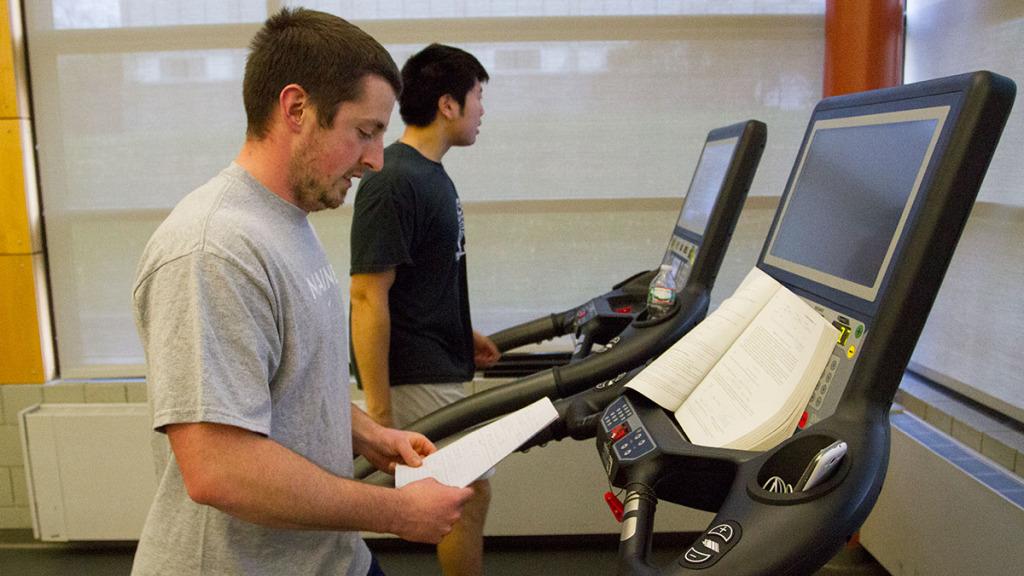Spencer Bailey, a 28-year-old senior, came to Ithaca after a drunk driving accident he caused changed his life.
Eight years ago, while driving home from a friend’s place in his brother’s Chevy around 3 a.m., Bailey swerved along a country road. Blue lights flashed in his rearview mirror. Still blacked-out, he stepped on the gas, and a chase broke out. On a sharp curve, the Chevy spun off the road and began to roll. Bailey crashed through the rear window and was kneeling in a ditch as the sirens grew louder.
He woke in a hospital bed. The sight of a police officer waiting outside brought flashbacks from the night before.
Bailey turned to his dad and said, “I wish I had died in that accident. I would have done us all a favor.”
He fell unconscious and didn’t wake up until later that afternoon in a jail cell. A guard standing nearby said he had a $5,000 bail and a three months sentence.
In jail, Bailey felt out of place. He kept to himself and spent most days in his cell. “I felt like my life was on pause,” he said. “I knew it wasn’t where I belong, that’s for sure.”
After 26 days, Bailey’s grandmother posted his bail.
Bailey had begun drinking and smoking almost every night his senior year in high school.
“I drank to make my problems go away,” Bailey said.
But his feelings of depression and loneliness were always still there the next day, he said. It got worse after graduation when Bailey’s then-girlfriend went away for school and he enrolled in Southern Maine Community College.
“I would go to my friend’s house and smoke a bunch of weed, and go home, and drink until I blacked out,” Bailey said. “That happened every day for five months.”
Some nights he would finish a bottle hoping he wouldn’t wake up.
“I just didn’t want to be around anymore,” he said.
A day after Bailey’s release from jail, he learned he could get his grandmother’s money back if he completed an outpatient rehabilitation program.
“During rehab they said, ‘Nine out of 10 of you aren’t going to make it.’ That was the first time I really went into something with an open mind,” Bailey said.
He had something to compete for — he wanted to be the one person to make it out.
While still in rehab, Bailey got a job plowing snow for the town of Wiscasset, Maine. Eventually he saved up enough money to rent an apartment with his younger brother, Stephen.
“He had had a tough time changing his lifestyle,” Stephen said. “We did everything we could to support him.”
The family chipped in money for a lawyer and provided rides to work. They helped Bailey work through the long days when his friends had stopped calling and depression felt like a familiar pain only a drink could ease.
Completing rehab trumped temptation, and after five months Bailey graduated from the program.
“He can do anything he puts his mind to,” Stephen said. “He confirmed that by getting sober.”
While living with his brother, Bailey began exercising every day. His mom suggested he consider going back to school to study exercise science. That night, Bailey took to the computer and searched for programs. A few clicks later, he found Ithaca College. With his application, Bailey included three character references and a personal letter.
That spring, the college accepted Bailey as a transfer student with junior standing.
Alec Kaden, a junior, currently works with Bailey on the same resident assistant staff. The two met in Bailey’s first semester last fall.
“He’s a very strong person and inspires me a lot,” Kaden said. “He comes from Maine, he’s older, there’s a lot of differences to overcome, but he still manages to connect with people.”
A daily exercise regimen has proved to be Bailey’s new self-medication. Even with a demanding class schedule and work in the residence halls, Bailey hits the gym for at least an hour every day. He often reads his physics book while walking on the treadmill.
In the spring, Bailey plans to graduate with a degree in exercise science. Sometimes, on his way to class, he gets tears in his eyes.
“Never once did I think when I stepped out of that jail cell I’d be here today. I never thought my life would be like this,” he said. “I think about the people who helped me get here. When I graduate, I just want to tell them, ‘If it wasn’t for you guys, I wouldn’t be alive.’ I’m not done either. This is just the beginning.”














